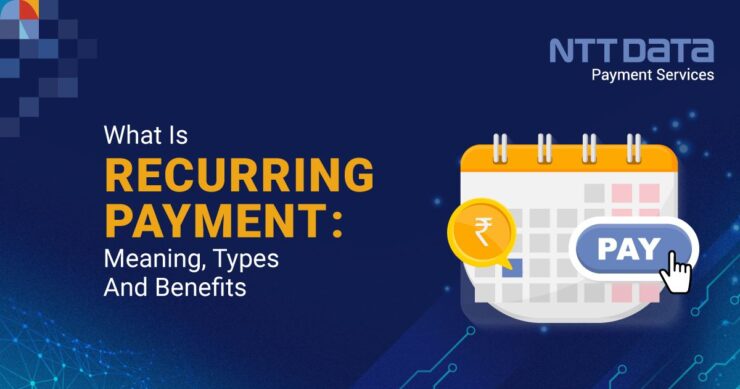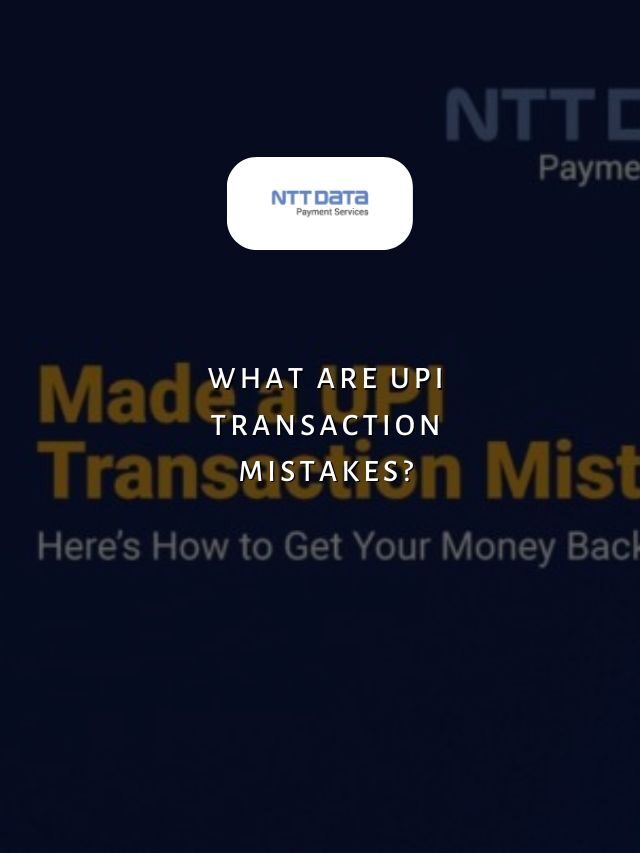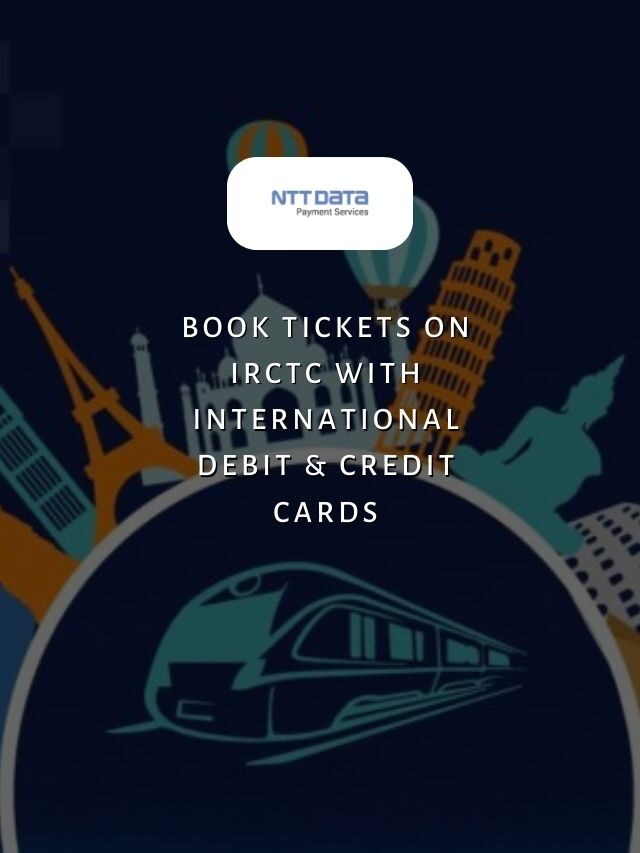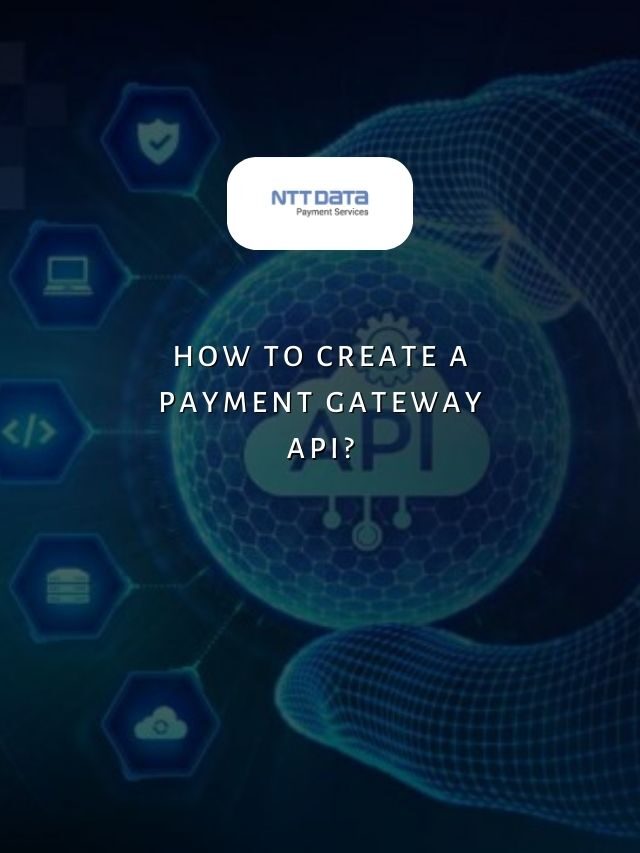
Table of Contents
- 1 Understanding The Recurring Payment
- 2 Recent Web Stories
- 3 What is Recurring Payments?
- 4 Types Of Recurring Payments
- 5 How Do Recurring Payments Work?
- 6 7 Benefits For Recurring Payments
- 7 Benefits For Merchants
- 8 Benefits For Customers
- 9 How To Stop A Recurring Payment
- 10 Secure Your Online Payments With NTT Data Payment Services
- 11 Simplifying Payments For Merchants And Customers With Recurring Transaction Automation
- 12 Recurring Payment: FAQs
Recurring payments have become integral to both B2B and B2C business models. They enable merchants to charge customers automatically on a predefined recurring schedule for ongoing services or subscriptions. This payment method offers advantages over one-time transactions for specific use cases.
Let’s explore what is recurring payment and also the types, and key benefits.
Understanding The Recurring Payment
Recurring payments have become increasingly important in today’s subscription-driven economy. From SaaS and streaming services to utilities and rent, the recurring billing model has grown tremendously in India in recent years as digital transactions boomed.
According to a report by an Indian FinTech corporation, recurring payments in India grew over 100% in 2021 and are expected to account for 56% of all online transactions by 2024. The COVID-19 pandemic accelerated this shift as lockdowns increased subscription adoption for streaming, ed-tech, and online services.
India now has over 450 million online shoppers who are increasingly comfortable with recurring billing for e-commerce subscriptions, utilities, and other use cases. As e-commerce grows rapidly in India, recurring payments are also expected to play a pivotal role.
Recent Web Stories
What is Recurring Payments?
A recurring payment refers to an automated payment process where pre-authorised transactions are charged to a customer’s credit/debit card or bank account at regular intervals, like monthly or annually. The amount charged each cycle can vary depending on usage or remain fixed.
Types Of Recurring Payments
The four types of recurring payments are
- Subscriptions: For memberships, online content/streaming, and software licenses charged monthly/annually.
- Instalments: EMIs or loan repayment in fixed amounts over the tenure.
- Utilities: Recurring bills like electricity, gas, cable/internet are typically charged monthly. Insurance or SIP payments.
- Rent/Mortgage: Property rent/EMI is regularly deducted from the tenant/owner’s account.
How Do Recurring Payments Work?
The customer and the business enter into an agreement through recurring payments, wherein the customer commits to making regular payments, and the business commits to continue providing the product or service for as long as the payments are received. The customer can renew or cancel the subscription when the contract expires.
Here’s a step-by-step process to understand recurring payments:
- Step 1: Upon subscribing to your product or service, customers can select a payment method (Credit Card, Direct debit, ACH, or UPI Autopay).
- Step 2: Subsequently, the customer can input their initial payment details, which are encrypted and securely stored in a payment gateway to process successive payments.
- Step 3: The payment intermediaries, including the acquiring bank, credit card network, and issuing bank, authorise the transaction, facilitating the payment transfer to the merchant account.
- Step 4: Payments are then automatically debited per a predetermined billing schedule for the duration of an active subscription, eliminating the necessity to input payment details for each payment cycle manually.
7 Benefits For Recurring Payments
Here are some benefits of recurring payments:
1. Revenue Predictability
Recurring payments allow merchants to accurately forecast cash flows and revenue on a monthly/annual basis. This helps with budgeting, financial planning, and securing financing.
2. Reduced Transaction Costs
Processing single transactions involves higher per-transaction fees compared to bulk recurring payments. Automation lowers the total cost of accepting payments.
3. Increased Average Order Value
Customers tend to spend more through subscriptions than one-time purchases. Recurring transactions thus boost average order sizes over time.
4. Reduced Cart Abandonment
Automatic renewals prevent services from lapsing due to missed or delayed one-time payments. This improves retention and customer experience.
5. Improved Customer Loyalty
Convenient auto-payments encourage repeat purchases and long-term engagement through loyalty programs, discounts on renewals, etc.
6. Access To New Customer Cohorts
The recurring model enables addressing new use cases and verticals like utilities, rent, SaaS, eLearning, etc., expanding total addressable markets.
7. Actionable Customer Insights:
Usage data from recurring transactions aids in understanding spending patterns and preferences to refine product-market fit over time.
Benefits For Merchants
- Retention: Reduces churn by automating renewals without manual intervention.
- Cash Flow: Predictable income stream for budgeting and financial planning.
- Convenience: Saves time spent on processing one-time transactions repeatedly.
- Uptime: Ensures services are paid for and remain active without lapses.
Benefits For Customers
- Convenience: ‘Set and forget’ payments without manual bill payments.
- Savings: Sign up for discounts and loyalty benefits for long-term commitments.
- Flexibility: Ability to pause/cancel recurring transactions with merchants.
How To Stop A Recurring Payment
When subscribing to a service, you are supposed to carefully monitor the setup process to ensure that automatic recurring billing is not enabled unless intentionally chosen.
In order to terminate recurring payments, the following steps should be taken:
- Contact the company through support emails or calls, clearly stating your request to cancel the subscription and providing the necessary account information for easy identification.
- Though the customer service representative may offer discounts or special deals to encourage you to stay, politely decline and reiterate your wish to cancel.
- If persuasion persists, politely request to speak with a supervisor for expedited processing of your cancellation request.
- Upon completion, confirm the receipt of the cancellation notification.
You can also explore the merchant application or platform, which might provide you with a recurring payment cancellations option.
Secure Your Online Payments With NTT Data Payment Services
As one of the largest payment gateways in the country, NTT DATA Payment Services provides merchants across sectors with robust APIs and plugins to integrate automated recurring payments easily. Our payment platforms are also tailored to meet regulatory compliance standards.
NTT DATA Payment Services offers a complete payment solution to advance both your offline and online businesses from,
- Online Payment Gateway
- POS machines
- IVR payments
- Mobile applications, and
- Bharat QR Scan and Pay
We ensure maximum comfort, convenience, and safety for all your payments.
Simplifying Payments For Merchants And Customers With Recurring Transaction Automation
Recurring payments are becoming increasingly popular in India, especially for subscription services. Recurring digital transactions are estimated to grow over 3x in the next five years. This reflects the rapid rise of digital subscriptions across diverse sectors like OTT, fintech, ed-tech, and more.
As e-commerce grows, recurring payments will be pivotal in subscription-based business models. Integrating them requires a robust payment platform for seamless automation.
| Also, you can get frequent updates on nttdatapayments Instagram page. |
Recurring Payment: FAQs
1. What are the types of recurring payments?
The main types of recurring payments include
- Subscriptions
- Installment, utilities (EMI, load)
- Rent/mortgage
2. What are the benefits of recurring payments?
Key benefits include
- Retention of customers
- Predictable cash flows
- Convenience by reducing manual transactions
- Ensuring services remain active without lapses in payments
3. What is meant by recurring payment?
A recurring payment is an automated process where pre-authorised transactions are charged to a customer’s account at regular intervals, like monthly or annually, for ongoing services. The amount can vary or remain fixed.
4. Why do merchants integrate recurring payments?
Merchants integrate recurring payments for the following reasons:
- Customer Retention
- Predictable Cash Flow
- Convenience
- Uptime Without lapses
5. What are the advantages for customers?
Customers benefit from the convenience of ‘set and forget’ payments without manual bills. Sign-up discounts and loyalty benefits for long-term commitments can also be used through recurring transactions.







